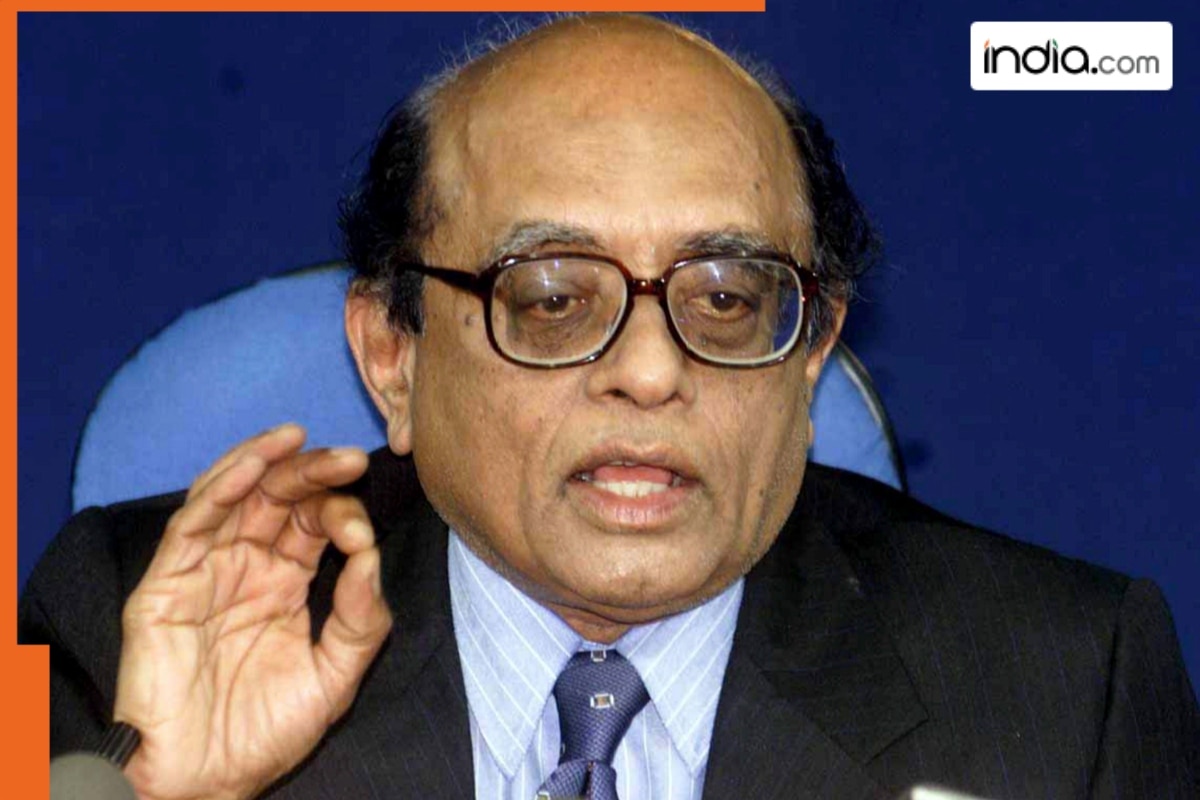R Chidambaram, architect of India’s nuclear weapons programme, passes away at 88, tributes pour in
Chidambaram joined the Bhabha Atomic Research Centre in 1962 and rose to become its director in 1990.

New Delhi: Rajagopala Chidambaram, the architect of India’s nuclear weapons programme who performed a key characteristic in the atomic tests at Pokhran in 1974 and 1998, handed away in Mumbai on Saturday, January 4 morning. He became 88.
High Minister Narendra Modi expressed deep anguish over the loss of life of Rajagopala Chidambaram. He posted on X: “Deeply saddened by the loss of life of Dr. Rajagopala Chidambaram. He became probably the most important architects of India’s nuclear programme and made ground-breaking contributions in strengthening India’s scientific and strategic capabilities. He'll be remembered with gratitude by the full nation and his efforts will inspire generations to reach.”
Deeply saddened by the loss of life of Dr. Rajagopala Chidambaram. He became probably the most important architects of India’s nuclear programme and made ground-breaking contributions in strengthening India’s scientific and strategic capabilities. He'll be remembered with gratitude by the full…
— Narendra Modi (@narendramodi) January 4, 2025
An global-class physicist and an astute science administrator, Chidambaram made legendary contributions to the realm of nuclear physics, apart from introducing innovative technologies to empower communities in rural India.
Chidambaram joined the Bhabha Atomic Be taught Centre (BARC) in 1962 and rose to change into its director in 1990.
In 1993, he helmed the nation’s nuclear programme as chairman of the Atomic Vitality Commission and as secretary in the Division of Atomic Vitality, a post he held until 2000.
Put up retirement, he became appointed because the foremost scientific consultant (PSA) to the Authorities of India in 2001, a post he held until 2018.
He also served as chairman of the board of governors of the World Atomic Vitality Company (IAEA) (1994-1995).
As PSA, Chidambaram suggested India’s forays in the fields of nano-electronics, done the Nationwide Info Community, and placement up Rural Expertise Action Groups (RuTAG) to fetch rural applications for evolved technologies.
He also championed initiatives in areas corresponding to energy, healthcare and strategic self-reliance, and suggested a form of initiatives that severely evolved India’s science and abilities landscape.
Chidambaram will be best identified for his contributions to India’s nuclear weapons programme with which he had been associated since 1967, when mute nuclear explosion abilities became great talked about globally.
He represented India at loads of worldwide conferences organised by the World Atomic Vitality Company.
As a part of Operation Smiling Buddha — the 1974 nuclear tests — Chidamaram became identified to assemble in my idea introduced the plutonium from Mumbai to Pokhran in Rajasthan.
He had famously donned navy fatigues in conjunction with the then Defence Be taught and Development Organisation (DRDO) Chairman APJ Abdul Kalam whereas engaged on the Pokhran-II tests — dubbed Operation Shakti — in 1998.
Chidambaram became on the helm of India’s atomic programme when 5 nuclear tests were done on May 11 and May 13 in 1998.
High Minister Atal Bihari Vajpayee then declared India as a nuclear weapons advise.
Among the 5 nuclear tests became also the thermo-nuclear tool, popularly identified because the neutron bomb.
Vajpayee’s visit to ground zero in Pokhran days after the nuclear tests were done also became an affidavit to the reality that there became no radioactivity contamination on the positioning.
Over a decade later, when some scientists associated with the 1998 nuclear tests puzzled the efficacy of the thermo-nuclear tool, Chidambaram and his successor Anil Kakodkar led a expansive defence of the final result.
Born on November 12, 1936, in Chennai, Chidambaram did his initial education on the Sanatan Dharam High College in Meerut. From eighth commonplace onwards, he studied on the PS High College at Mylapore in Chennai and graduated from the Presidency College.
Chidambaram did his postgraduate analysis at Indian Institute of Science in Bengaluru.
He became honoured with prestigious accolades, including the Padma Shri in 1975 and the Padma Vibhushan in 1999. He also purchased honourary doctorates from loads of universities and became a fellow of popular Indian and global science academies.
He is survived by wife Chella and daughters Nirmala and Nithya.
“Dr Chidambaram became a doyen of science and abilities whose contributions furthered India’s nuclear prowess and strategic self-reliance. His loss is an irreparable one for the scientific community and the nation,” Ajit Kumar Mohanty, Chairman, Atomic Vitality Commission, mentioned.
Chidambaram will be remembered as a “trailblazer, an inspirational chief, and a dedicated mentor to limitless scientists and engineers”, he mentioned.
(With PTI inputs)
What's Your Reaction?



















































